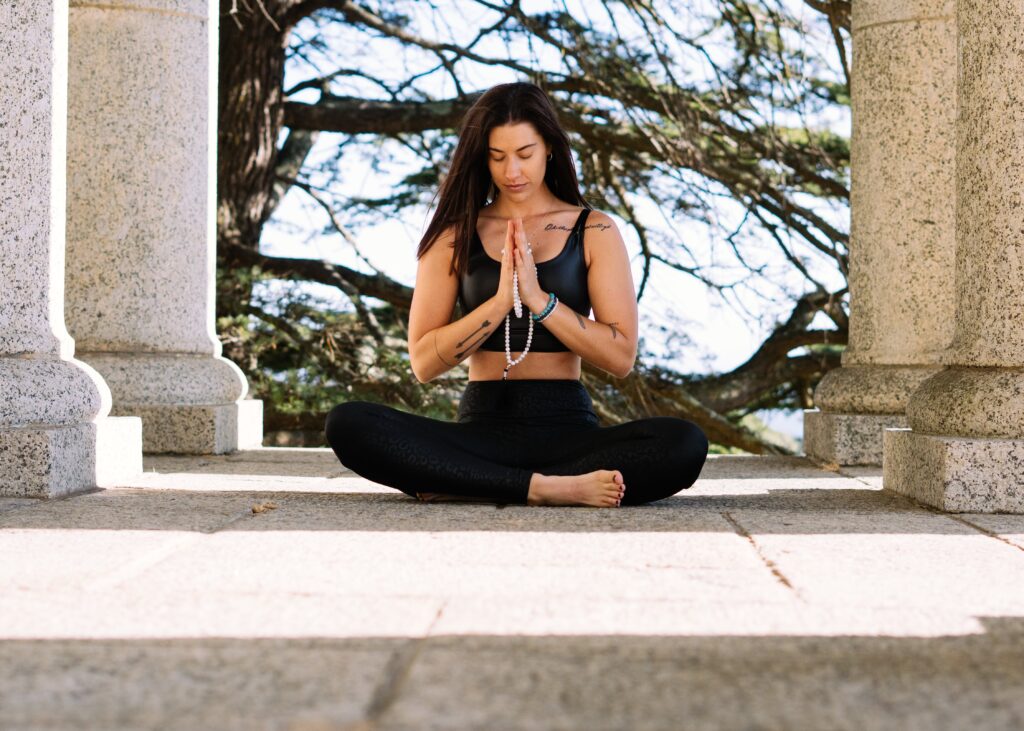Published 30th December 2023, Anxiety, Depression and CBT/Cogitive Behaviour Therapy and Anxiety
Mindfulness Meditation
for Anxiety and Depression

Good Morning, Afternoon, Evening, wherever you are in the world as we speak, Welcome to The Takeover Strategy Blog. Welcome, Welcome, Welcome.
Firstly I want to start by saying Happy New Year to everyone, I hope 2024 is going to be as a good for you as it's going to be for me.
As we already know many individuals grapple with the silent struggles of anxiety and depression. As these mental health issues continue to impact a growing number of people, alternative approaches to conventional treatments are gaining traction. One such approach that has garnered significant attention is mindfulness meditation. In this comprehensive guide, we'll take a look into the world of mindfulness meditation, examining its profound benefits for anxiety and depression and providing practical, step-by-step tips for integrating it into daily life.
My mindfulness comes from following Buddism, this is where you are taught to be mindful of your thoughts, and let them come and go with ease. I am not saying for one minute it's not hard to do, it's very difficult, but it can be done with daily practice. Let's take a look at what we can do to get into the mindset of being Mindful. Before we delve into the practice of mindfulness meditation, it's crucial to gain a deeper understanding of anxiety and depression. These two mental health challenges are intricate and often coexist, requiring a nuanced approach for effective intervention. Anxiety is characterized by excessive worry, physical symptoms like restlessness, and irrational fears, sometimes culminating in panic attacks. On the other hand, depression manifests as persistent sadness, loss of interest in once-enjoyed activities, and disruptions in sleep patterns, leading to fatigue. The causes of these conditions are multifaceted, involving biological factors like neurotransmitter imbalances, genetic predispositions, environmental stressors, and certain personality traits and sometimes culminating in panic attacks. What makes it more complex is the frequent coexistence of anxiety and depression, known as comorbidity. Both conditions often share common underlying mechanisms, such as dysregulation of the stress response system. It's essential to recognize the significance of addressing anxiety and depression, considering their profound impact on daily functioning, the risk of chronicity, and their potential implications for physical health. Left untreated, these conditions can adversely affect relationships, work, and overall well-being. Therefore, a comprehensive approach to well-being is important, encompassing various therapeutic modalities, with mindfulness meditation serving as a valuable tool in this holistic journey toward improved mental health. By understanding the nuances of anxiety and depression, we can take the first step toward a more informed and effective path to healing.

For novices stepping onto the path of mindfulness, you would begin with fundamental techniques centered around the breath. Mindful breathing exercises serve as the cornerstone, fostering a connection between the mind and body. Emphasizing the importance of the focus on the breath, acknowledging thoughts without judgment, and gently redirecting attention when the mind wanders. Techniques such as body scan meditation encourage a heightened awareness of physical sensations, promoting a profound connection with the present moment. All you do is simply scan each part of the body whilst in Meditation, fostering a holistic and non-judgmental awareness. This helps you move beyond the physical, loving-kindness meditation emerges as a powerful practice to cultivate compassion and empathy towards oneself and others. Mindfulness meditation is not a one-size-fits-all practice, so it's good to work out what works for you, maybe introducing walking meditation for those who find solace in motion, and open awareness meditation for individuals seeking a more expansive and inclusive approach. Furthermore, nuanced insights accompany each technique, offering valuable tips for overcoming common challenges and deepening the meditation experience. One of my favorite Buddhist techniques is a Buddhist tradition that seeks to foster feelings of love and compassion towards oneself and others. You need to find a serene and quiet space, allowing yourself to sit comfortably with closed eyes. Begin by directing affirmations of positive wishes towards yourself, such as "May I be happy," "May I be healthy," "May I be safe," and "May I live with ease." As you repeat these phrases slowly, let genuine warmth and kindness envelop you. Gradually extend this loving-kindness to others, starting with those close to you and then expanding to acquaintances, strangers, and even those with whom you may have challenges. Tailor the phrases accordingly, adjusting them to suit the person or group in focus. Visualization can enhance the practice, allowing you to picture the well-being of others. Progressively extend your loving-kindness to broader categories, including entire regions or all living beings. If your mind wanders, gently guide it back to the practice. Consistency is key; start with shorter sessions and gradually increase the duration. Approach the practice with sincerity, adapt the phrases to resonate with you, and be patient, recognizing that the benefits of Metta meditation unfold over time.

Another one that I believe is very important is Mindful Eating is a contemplative practice that invites a heightened awareness and presence during the act of consuming food. It entails paying full attention to the entire process of eating, encouraging a deeper connection with the nourishment being ingested. Engage your senses by consciously observing the colors, textures, flavors, and smells of the food before you. As you take each bite, chew slowly and deliberately, savoring the richness of each moment. The essence of mindful eating lies in being fully present and immersed in the experience of nourishing your body. All these practices help your awareness of other things, then you can develop a more profound connection with food, fostering a sense of gratitude and mindfulness that extends beyond the dining table into other aspects of life.
Engaging in reflection and contemplation is a profound practice that encourages personal growth and mindfulness. By deliberately setting aside dedicated time for introspection, individuals can delve into their inner thoughts, experiences, and actions. This process involves adopting an attitude of curiosity, allowing oneself to explore without judgment. Reflecting on experiences enables a deeper understanding of emotions, motivations, and the impact of one's actions on both oneself and others. It serves as a powerful tool for self-awareness and emotional intelligence. Additionally, contemplating teachings or pondering philosophical questions further enriches the reflective process, offering a broader perspective on life and its intricacies. This intentional introspection not only fosters personal development, but as I have found can also inspire insightful blog posts that share valuable lessons, reflections, and wisdom with a wider audience. Ultimately, the combination of reflection and contemplation creates a space for meaningful self-discovery and contributes to a more mindful and purposeful way of living.
Wishing you Love and Light
Svaha (So be it) x
MEET THE TEAM
John Thompson

CEO/Founder, Business Development Entrepreneur & Life Coach
Kasia Papadopoulos

Lead Designer, and Business Development Entrepreneur & Life Coach
Jake Mann

SEO Expert and Digital Marketer
Deema Patel

Email Marketer and Content Writer

Blog Sign Up
Craving fresh insights? Join our blog! Explore intriguing topics, gain wisdom, and spark innovation. Sign up now. Your daily dose of inspiration awaits!
Newsletter Sign Up
Stay ahead of the curve! Sign up for our illuminating newsletter today and gain privileged access to exclusive content, stimulating thought-pieces.
Comments
